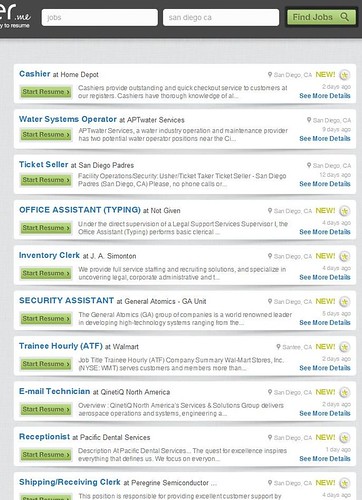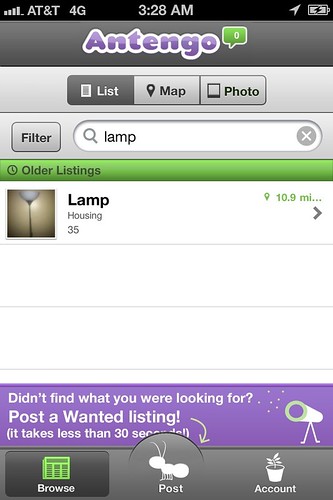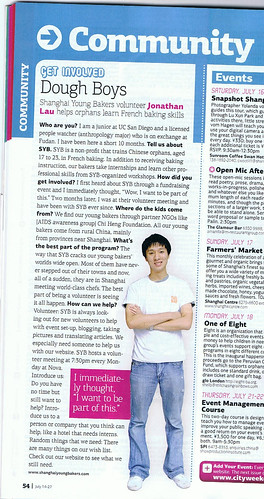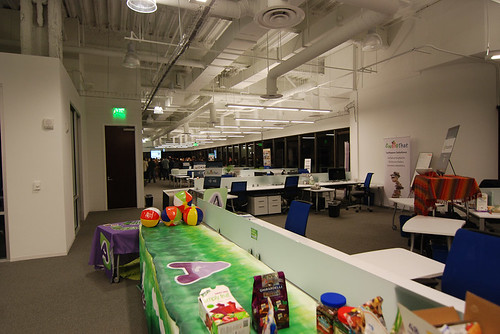 |
| EvoNexus is a beautiful space right in downtown |
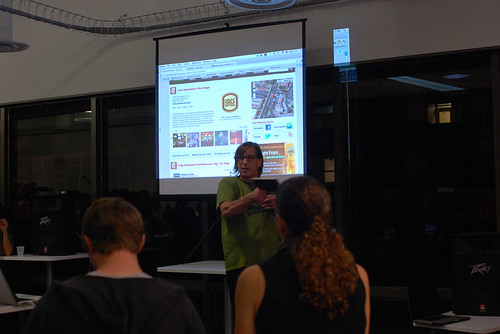 |
| Organized by SD's biggest startup celebrity Brant Cooper |
In all honesty, I was not expecting much out of the demo night as I had heard the San Diego startup scene is small and rumors about evoNexus's difficulty in signing up quality startups to their incubator. Instead, the demo night far surpassed my expectations.
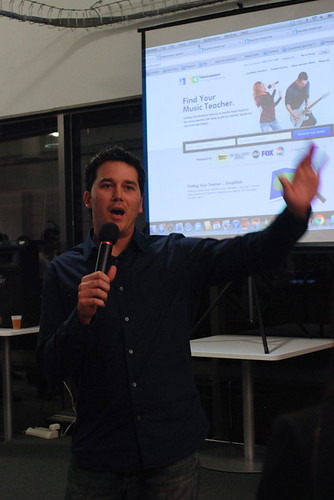 | 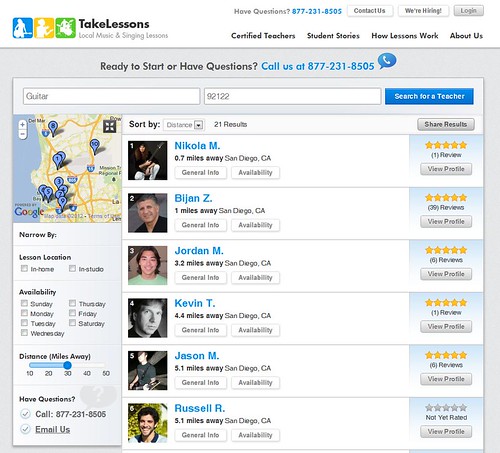 |
TakeLessons is a site that helps people find music teachers in their area, kind of like a skillshare.com for music. In addition, it is also a customer relationship management platform for music teachers. Music teachers have to apply to get on TakeLessons.com and get processed through algorithms, that calculate things like how many students the teacher can handle, lifetime amount they will earn as well as the level of competition in the locale. Only musicians who run through the algorithms with a certain score get to be listed on the site.
I strongly believe in TakeLesson's model and love the idea of simple CRM for music teachers, because as TakeLessons said in the demo, most music teachers just want to teach music. They do not want to deal with payments, scheduling and marketing, and would gladly pay for a service that would do that for them.
With partnerships with Best Buy and now Amazon where buyers of music instruments will get offered a deal or giftcard for Takelessons, I expect to see TakeLessons become a mainstream service in the very near future.
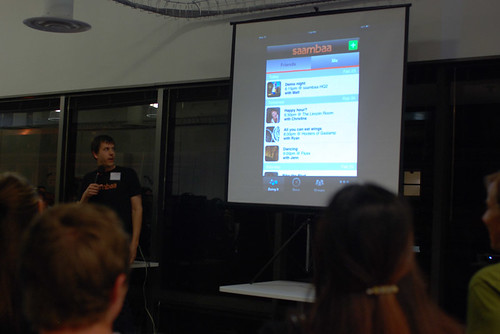
This was a neat little app that was kind of like a location based Google calendar or Facebook event. Users go on the app and browse what their friends are doing at that moment them. In addition, users can make events and invite their friends to them. Usually, I have qualms about products that require a large user base to work but with saambaa, users can invite people to the event straight off their phone book by SMS meaning that non-app users can participate in the fun as well.
I am not exactly bullish on saambaa's prospects because there are quite a few location based event planning/discovery apps out there but I do like what I see and will definitely be keeping an eye on them as they attempt to raise. My only complaint and its a huge one is that the app is extremely unstable, it has crashed on me so much that it is nearly unusable, in addition, it crashed when I tried to sign on using facebook meaning that I had to trudge through the manual registration process.
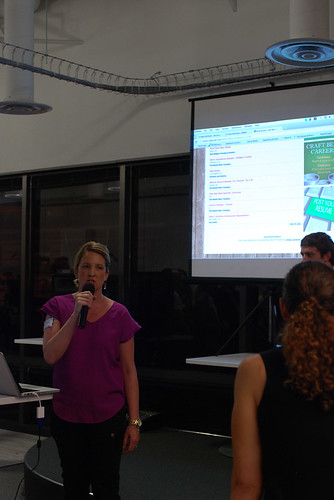 |
|
Tap Hunter was probably the least impressive out the demo night line up. Their app allowed users to track the craft brews that their local bar has on tap. Hearing that I already thought it was a fairly trivial app as not knowing what is on tap is not exactly a huge pain point for most people. Nonetheless, I was intrigued due to the fact I am currently just getting into craft brews.
Upon downloading the app, I was hit with a 5+ minute loading time when I launched it, as TapHunter attempted to download information from the server. I say attempted because my phone locked out because TapHunter took so long to download from the server, the lock out interrupted the download and caused the app not to work. I had to reinstall the app and make sure it did not lock out again before it finished downloading the second time. However, the disappointment only deepened when I started using the app and realized my local bar had not updated their selection in 530+ days. A quick look at the comments in the app showed that information that was outdated for over a year was the norm.
Avoid this app.
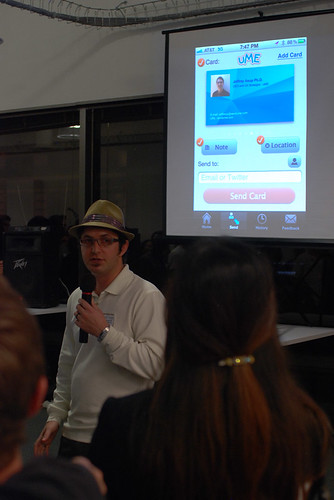
When I heard that uMe was another one of those business card apps, I dismissed them. However, when I saw their demo, I started seeing some possiblities. The founder showed how he could distribute his card to the whole audience by having us just email his uMe address, which I thought was pretty neat and could see being useful in a conference setting. Distributing uMe cards through was also a great idea because that meant that non-uMe users could receive uMe cards, once again overcoming the critical mass problem that so many apps have.
However, once I downloaded the app and actually started using it, I was once again disappointed. Their UI was plain and maybe even a little ugly. My biggest gripe was the limited number of business card templates all of which were hideous. The last deal breaker, is the fact that my biggest problem with business cards is not that I never have any on me, but rather of how to organize all the ones I receive. The uMe app does not solve that problem as I can only receive other uMe cards with the app, which essentially makes it useless because nobody uses the app.
Looks I am going to stick with Cardmunch as my business card app of choice.
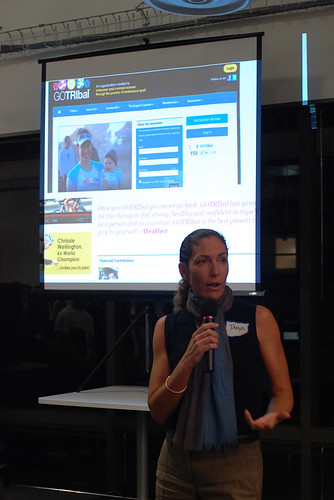 | 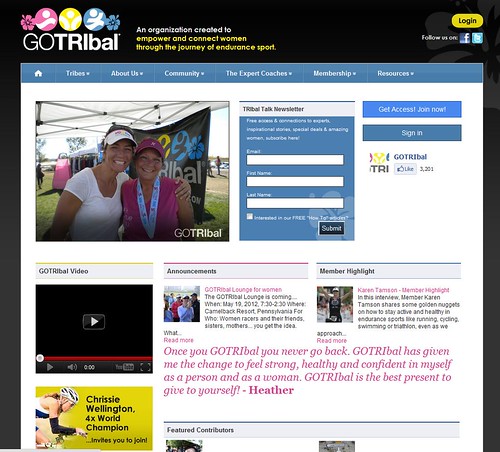 |
Kareer.me
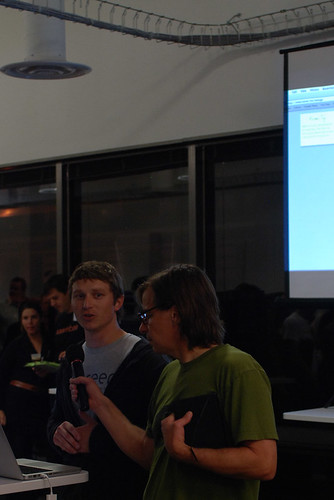 |
|
This startup is looking to remake the resume. Kareer.me allows you to make a richer resume with video intros, etc and it also allows you to simply make multiple versions of a resume, which is a big plus for people looking to tailor their resumes to each job. Kareer.me is also a jobs site meaning that users can immediately apply to jobs that companies have posted with their freshly made resumes. However, when I checked the job listings on Kareer.me it was filled with positions like cashier, dishwasher and clerk which are not exactly the positions that their target segment of college students are aspiring to apply for.
As one of many startups trying to remake the resume and with nothing to make Kareer.me really standout from the pack, I am bearish on its prospects.
Antengo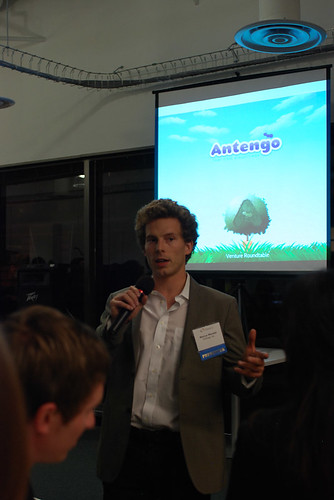 |
|
In a world with the likes of Zaarly and Taskrabbit, the local market place app space is pretty crowded. Antengo is basically a no nonsense mobile version of Craigslist and for that it works well. The UI is intuitive (not like Zaarly's redesign) and it looks way better than Craiglist.
However, the reason I am not using Antengo over Craigslist right now is because there are very few users! At the demo, the founder spouted some impressive statistic regarding active users and transactions, but the fact is that I simply cannot find anything I want on Antengo. Looks like I am going to stick with hideous Craigslist and I bet many others will too.


